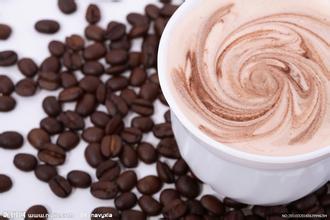Coffee drinking reduces pain from exercise

Robert Motel, a professor at the University of Illinois, has been studying the relationship between caffeine and exercise for seven years. He found that caffeine affects the parts of the brain and spinal cord responsible for dealing with pain, so he speculates that it can reduce pain caused by exercise.
To prove this theory, Myrtle and the researchers organized experiments.
They divided 25 healthy men in their 20s into two groups. One group drank little or no coffee, while the other group consumed an average of about 400 milligrams of caffeine a day, equivalent to three to four cups of coffee.
The researchers first asked the subjects to ride a fitness bike to measure the maximum oxygen consumption per person. They were then assigned to two groups of high-intensity exercise cycling for 30 minutes each.
According to the rules of the experiment, subjects are not allowed to take caffeine within 24 hours before exercise.
Conclusion
The researchers gave the subjects a pill an hour before the exercise began. The first group took caffeine tablets containing 5 milligrams per kilogram of body weight, while the second group took caffeine-free placebos.
After the exercise began, the researchers recorded the pain in the quadriceps and their oxygen consumption, heart rate and exercise efficiency at regular intervals.
The results showed that the 25 people felt less pain during exercise to the same extent.
"the results were unexpected," Myrtle said. "it's clear that if you already consume caffeine regularly, you need to drink more to get a more refreshing effect. But this tolerance effect is not universal. You give caffeine to regular and infrequent coffee drinkers, and then scan their brain images and find that their brain activity is exactly the same. This is interesting. "
Important Notice :
前街咖啡 FrontStreet Coffee has moved to new addredd:
FrontStreet Coffee Address: 315,Donghua East Road,GuangZhou
Tel:020 38364473
- Prev

Caffeine stimulates the role of coffee in cognitive areas of the brain
German researchers have recently found that caffeine can stimulate the joint area of the cerebral cortex, which is mainly responsible for complex cognition, which may contribute to the research, prevention and treatment of diseases related to this region, such as Alzheimer's disease. The German Yulich Research Center said in a press release a few days ago that researchers used positron emission computed tomography (PET) technology to find that caffeine is mainly caffeine.
- Next

Cleanliness and health: knowledge of cleaning and maintenance of coffee machines
Experts teach you coffee machine cleaning and maintenance knowledge: young people, there is a habit, that is, coffee can not be separated from the desk, coffee taste is mellow, with refreshing and help digestion role, but we need to remind you that coffee contains caffeine, pregnant women, breast-feeding women, people with stomach problems and skin diseases are not suitable to drink, so you should pay attention to drinking. When drinking
Related
- Beginners will see the "Coffee pull flower" guide!
- What is the difference between ice blog purified milk and ordinary milk coffee?
- Why is the Philippines the largest producer of crops in Liberia?
- For coffee extraction, should the fine powder be retained?
- How does extracted espresso fill pressed powder? How much strength does it take to press the powder?
- How to make jasmine cold extract coffee? Is the jasmine + latte good?
- Will this little toy really make the coffee taste better? How does Lily Drip affect coffee extraction?
- Will the action of slapping the filter cup also affect coffee extraction?
- What's the difference between powder-to-water ratio and powder-to-liquid ratio?
- What is the Ethiopian local species? What does it have to do with Heirloom native species?

